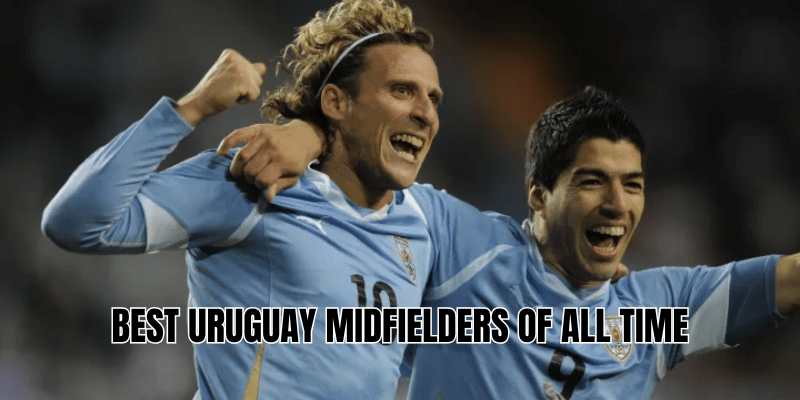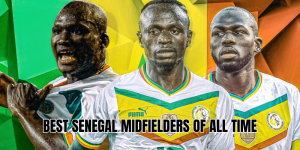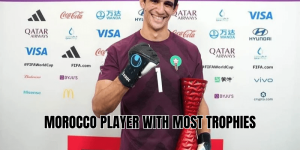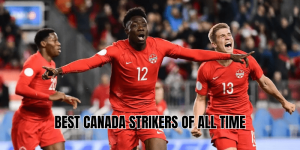When you think of Uruguayan football greatness, your mind might first flash to strikers or defenders — Suárez’s thunderous finishes, Godín’s commanding presence, or Cavani’s clinical runs. Yet, hidden in the fabric of La Celeste’s glorious history are midfield maestros who sculpted play, carried dreams, and anchored generations. In this article, AnnuGoal will escort you through the stories, stats, and legends behind the best Uruguay midfielders of all time — the creators, the stalwarts, the emotional engines of the Uruguayan identity in football.
What Makes a Midfield Legend in Uruguay
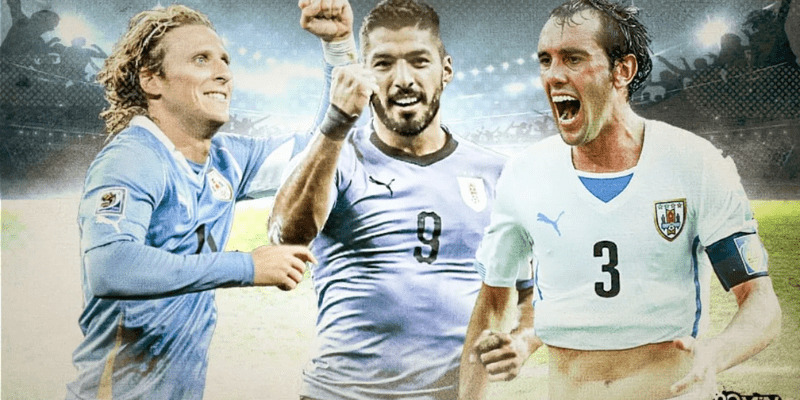
A Uruguayan midfield legend must balance artistry and grit. Uruguay’s style is built on resilience, tenacity, and moments of magic. So our picks must:
- Have had significant impact at national team level (World Cups, Copa América, key matches).
- Possess technical skill, vision, or leadership — not just statistical output.
- Endure in memory: their influence on subsequent generations should still echo.
With that in mind, let’s journey.
The Trailblazers: Andrade and Varela
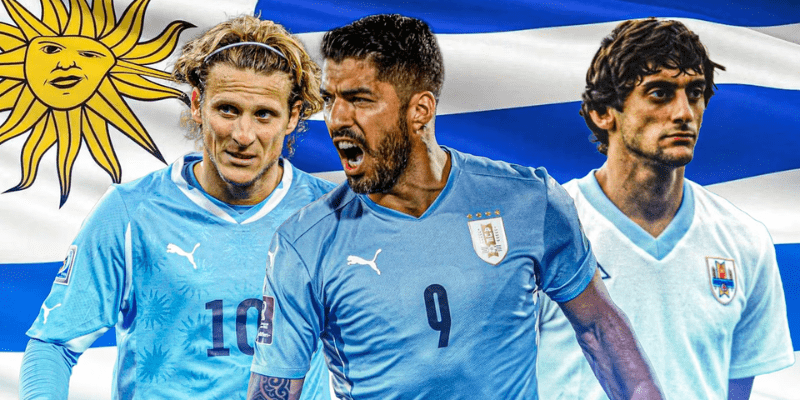
José Leandro Andrade — “La Maravilla Negra”
Long before the modern game, José Leandro Andrade (1901–1957) etched himself into eternity. A defensive-minded wing-half with subtle grace, Andrade played a brand of midfield that mixed intelligence and elegance. He was central to Uruguay’s Olympic golden eras (1924, 1928) and their triumph in the inaugural 1930 World Cup, being named in the tournament All-Star XI.
He earned 34 caps and scored once, but his influence transcended numbers. In a time when African-descended players faced tremendous prejudice, Andrade broke through both socially and athletically, earning admiration across continents.
Obdulio Varela — “El Negro Jefe”
No list of Uruguayan legends can exclude the shadow and aura cast by Obdulio Varela (1917–1996). While more known as a captain and leader, he operated in midfield roles crucial to control and balance. He was the heartbeat of the “Maracanazo” — in the 1950 World Cup final, he psychologically and tactically twisted the game. Facing Brazil in front of 200,000 fans, his calm walk with the match ball, his slow play, and his mental fortitude helped Uruguay turn the tide.
Though his goal numbers are modest, Varela’s leadership, defensive awareness, and dictatorial presence symbolized Uruguay’s spirit. He is often referenced as one of the first true holding midfielders in Uruguay’s tradition.
The Golden Ring: Schiaffino, Francescoli, Rocha
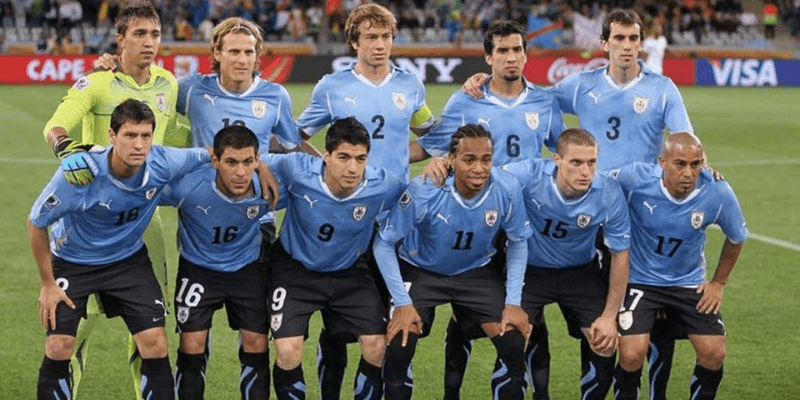
These three sit at the highest round table of Uruguayan midfield greatness.
Juan Alberto Schiaffino — The Tactical Architect
Juan Alberto “Pepe” Schiaffino (1925–2002) captured imagination with his intellect and vision. He was Uruguay’s attacking midfielder par excellence, orchestrating the 1950 World Cup final with a goal of his own, and becoming a defining figure in that watershed moment. His ability to control tempo, feed teammates, and drift into scoring positions placed him among the greatest playmakers of his era.
He had 21 caps for Uruguay (plus later appearances for Italy), scoring 9 goals. His club journey ranged from Peñarol to Milan and Roma — always with sophistication. Schiaffino was named by IFFHS among the best Uruguayan players ever.
Enzo Francescoli — “El Príncipe” Who Wore the Crown
If Schiaffino laid the foundation, Enzo Francescoli (born 1961) refined artistry. Known as “El Príncipe,” he was elegant, composed, and capable of sudden bursts of genius. He earned 73 caps and netted 17 goals, lifting three Copa América titles (1983, 1987, 1995) and representing Uruguay across two World Cups.
At club level, his stints in Argentina, France, and Italy elevated his status beyond national borders. He was even selected by Pelé in the FIFA 100 list of greatest living players. Francescoli’s legacy is that of the quintessential Uruguayan playmaker: technical, composed, creative.
Pedro Rocha — The Forgotten Maestro
While perhaps less celebrated globally than Francescoli or Schiaffino, Pedro Rocha remains vital to any “best Uruguay midfielders” discussion. He appeared in four consecutive World Cups (1962, 1966, 1970, 1974) — a rare feat — and was a versatile attacker-midfielder known for stamina, dribbling, and resilience.
His influence often came in transitions: he could drift back, support defense, yet also break forward. In Uruguay lore, Rocha represents the generation linking the old guard to modernity.
Modern Engines: Diego Pérez and Nicolás Lodeiro
Diego Pérez — The Defensive Anchor
In the contemporary era, Diego “Ruso” Pérez (born 1980) embodies the scrappy, tireless side of Uruguayan midfield. He featured in 89 national team matches, playing in the 2010 World Cup and multiple Copa América tournaments. His role: break play, hold position, shield defense.
Clubs like Monaco and Bologna saw him as a disciplined, reliable presence. He never stole headlines with flair, but his do-or-die spirit, positioning, and tactical discipline make him a modern idol for Uruguayans who love grit as much as artistry.
Nicolás Lodeiro — The Creative Link
Bridging tradition and modernity, Nicolás Lodeiro (born 1989) is the attacking spark of recent Uruguayan teams. In his 60 caps, Lodeiro offered vision, directness, and composure in tight spaces. He featured in two World Cups and multiple Copa América editions.
At club level, he’s played in Uruguay, Netherlands, Brazil, Argentina, and Major League Soccer, proving adaptability. Whether threading passes or pressing, Lodeiro represents the renewed creative class of Uruguayan midfield.
Honorable Mentions & Emerging Contenders
- Jorge “Mágico” Curbelo — A more niche name but remembered in Uruguay for flashes of creativity in domestic leagues.
- Rodrigo Bentancur — The younger Uruguayan midfielder currently making strides in Europe, with potential to be among the best in Uruguay’s future.
- Carlos Santos / Víctor Rodríguez types.
Comparative Table: Stats & Impact
| Player | National Caps | Goals | Era | Key Strengths / Legacy |
| José Leandro Andrade | 34 | 1 | 1920s–30s | Pioneer, graceful control, Olympic and World success |
| Obdulio Varela | ~45+ (varies) | Few | 1940s–50s | Leadership, control, tactical composure |
| Juan Schiaffino | 21 | 9 | 1940s–50s | Vision, scoring, World Cup influence |
| Enzo Francescoli | 73 | 17 | 1980s–90s | Elegance, playmaking, continental success |
| Pedro Rocha | ~50+ | – | 1960s–70s | Versatility, longevity across four World Cups |
| Diego Pérez | 89 | 2 | 2000s–2010s | Defensive discipline, engine room strength |
| Nicolás Lodeiro | 60 | 5 | 2010s–present | Creativity, link play, modern attacking role |
Why They Matter Beyond Numbers
Football is storytelling, heart, identity. Uruguay’s midfield legends did more than pass and dribble — they carried emotionally pivotal moments. Andrade challenged social norms, Varela lifted morale in the Maracanazo, Schiaffino and Francescoli brought beauty and class to a rough-hewn national style, Pérez brought workmanlike grit, and Lodeiro is renewing that bridge.
When you look at Uruguay’s World Cup triumphs, Copa América glories, and fierce competitiveness in every era, it’s often the midfield that swells, blooms, and survives. These players lie at the core of those stories.
Conclusion
Best Uruguay midfielders of all time is not just a list — it’s a narrative of identity. Uruguay’s victories and heartbreaks have often traveled through the feet, minds, and spirits of these midfield heroes. From Andrade’s pioneering grace, Varela’s iron will, Schiaffino’s orchestration, Francescoli’s reign, Rocha’s consistency, Pérez’s tenacity, to Lodeiro’s modern spark — each has shaped La Celeste’s soul.
If you enjoyed this lineup, stay tuned with AnnuGoal. We’ll keep exploring biographies, match stories, and tactical deep dives so you can feast on football knowledge. Which Uruguayan midfielder do you believe should be added or debated? Drop your thoughts below or check out our next article on the best Uruguay forwards or defenders.
